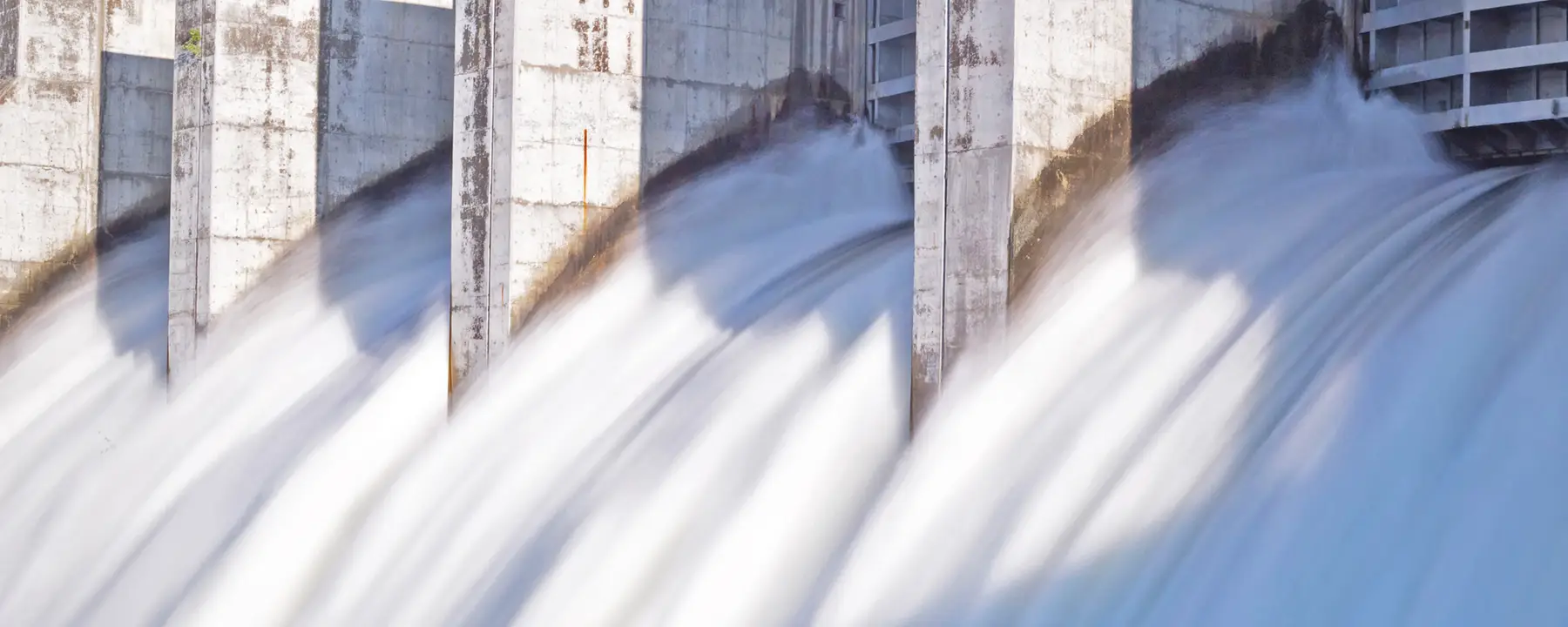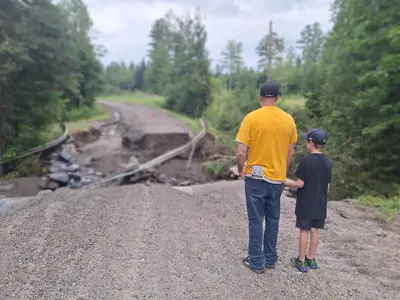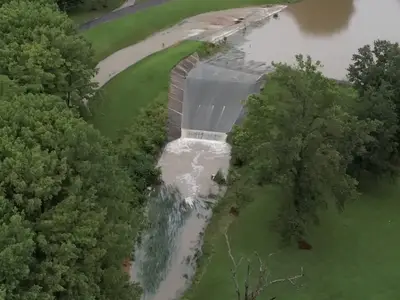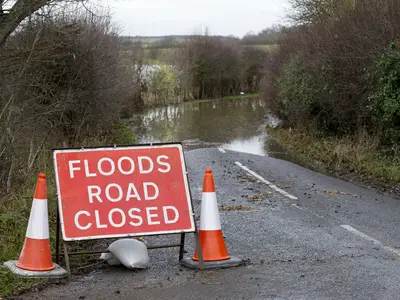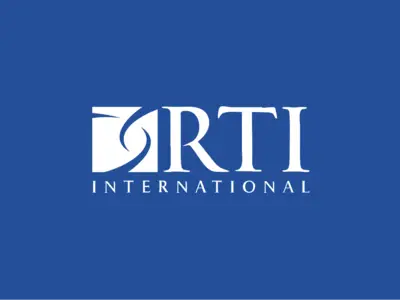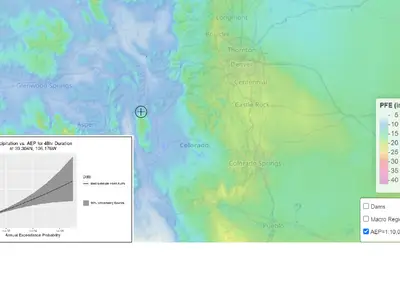Leading edge approaches to characterize flood risk and shape effective strategies for resilience
Risks associated with extreme precipitation events are of significant and growing concern in nearly all parts of the world. Communities are vulnerable not only to direct impacts of extreme storms and floods, such as flood inundation, but also to indirect impacts resulting from infrastructure failure. Dams and other infrastructures provide critical flood control and water storage benefits; however, each is also susceptible to damage or failure under extreme conditions.
Recognizing this, managers regularly assess the safety and reliability of their systems and allocate funds for improvements, such as rehabilitation or new construction. Competing needs, however, make funding those improvements a challenge; therefore, managers need tools to quantify risk and prioritize the capital improvements that will reduce the most risk in their systems. Our probable flood hazards assessment (PFHA) services support planning-scale decisions related to public safety, water security, dam safety and capital improvement.
Our unique services support risk-informed decision-making so that you can focus your capital improvement efforts on the critical issues that are most likely to have significant consequences. These advanced probabilistic approaches allow us to assess long-term risk and vulnerability given highly uncertain future conditions.
Flood risk assessment solutions include the following:
- Probabilistic flood hazards analyses (PFHA) - Application of probabilistic methods to characterize flood hazards and hydrologic loading.
- Downstream Consequences Analyses - Evaluation of potential life loss, economic damages (direct and indirect), and environmental impacts.
- Precipitation Frequency Analysis - Development of necessary hydrometeorological data such as storm spatial and temporal templates and precipitation-frequency estimates to support PFHA.
- Dam Portfolio Screening Analysis - Screening-level hydrologic loading and consequence assessments across large dam inventories.
- Hydrologic Modeling - Simulation of watershed processes to estimate runoff, streamflow, and flood hydrographs.
- Hydraulics and Reservoir Modeling - Dam breach analysis, reservoir routing, and downstream hydraulics for inundation assessment.
- Flood Inundation Mapping - Development of detailed flood maps and viewers to support emergency action plans and risk communication.
